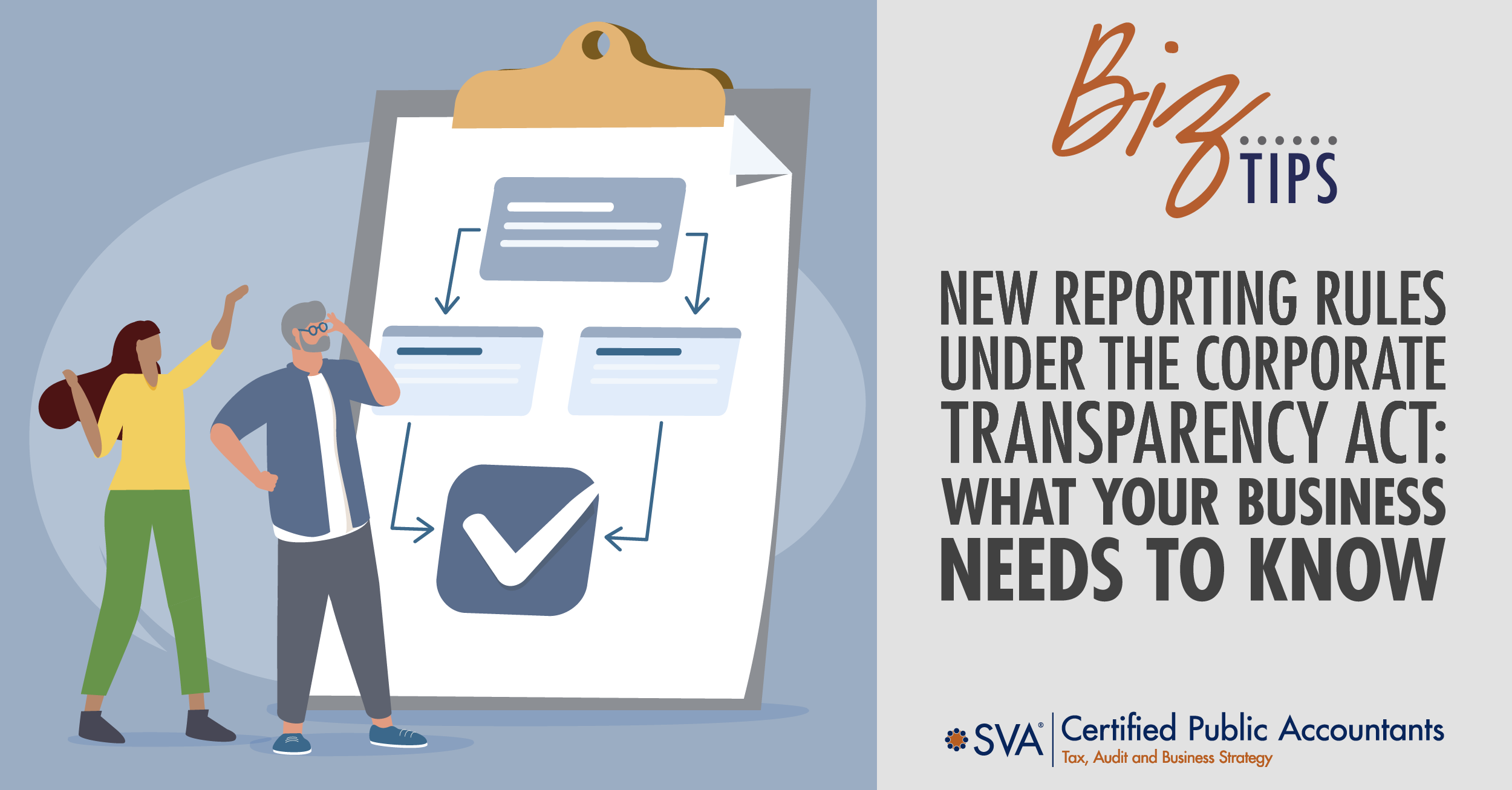As of January 1, 2024, businesses may face new reporting obligations under the 2021 Corporate Transparency Act (CTA).
This Act requires certain companies to disclose information about their "beneficial owners" — the individuals who ultimately own or control the company — to the Financial Crimes Enforcement Network (FinCEN). Non-compliance could lead to severe penalties.
On November 29, FinCEN announced it was amending the Beneficial Ownership Information (BOI) reporting rules.
Understanding the CTA
The CTA is intended to reduce exposure to serious crimes, including terrorist financing, money laundering, and other nefarious activities. But it could also open the door to the inspection of family offices, investment angels, and other private individuals who’ve generally been shielded from scrutiny in the past.
The CTA’s rules generally apply to both domestic and foreign privately held reporting companies, including corporations, LLCs, or other entities registered in the U.S.
Notable exemptions include large operating companies with more than 20 full-time employees, more than $5 million in annual gross receipts or sales (not including receipts and sales from foreign sources), and a physical U.S. operation. However, many of these companies already must meet other reporting requirements providing comparable information.
If an entity initially qualifies for the large operating company exemption but subsequently falls short, it must then file a BOI report. On the other hand, an entity that might not currently qualify can update its status with FinCEN if it later does and obtain an exemption.
Who is a Beneficial Owner?
Under the CTA, a nonexempt entity must provide identifying information about its beneficial owners. A beneficial owner is defined as someone who, directly or indirectly, exercises substantial control over a reporting company, or owns or controls at least 25% of its ownership interests.
An individual has substantial control of a reporting company if he or she:
- Is a senior officer of the company
- Has authority over the senior officers or a majority of the company's board
- Has substantial influence over the company's important decisions
- Has any other type of substantial control over the company
This generally includes individuals who are directly related to ownership interests in the company, but indirect control may also result in classification as a beneficial owner.
Individuals who aren’t treated as beneficial owners of a reporting company under the CTA include:
- Someone acting as a nominee, intermediary, custodian, or agent on behalf of a beneficial owner
- An employee of the reporting company who has substantial control over the entity’s economic benefits because of his or her employment status (but only if the individual isn’t a senior officer of the entity)
- An individual whose only interest in a reporting company is a future interest through a right of inheritance
- Any creditor of the reporting company (unless the creditor exercises substantial control or has a 25% ownership interest in the reporting company)
- A minor child
However, for minor children, the reporting company must report information about each child’s parent or legal guardian.
Defining Company Applicants
The CTA also requires reporting companies to provide identifying information about their company applicants. A company applicant is someone who’s:
- Responsible for filing the documents that created the entity (for a foreign entity, this is the person who directly files the document that first registers the foreign reporting company to conduct business in a state)
- Primarily responsible for directing or controlling the filing of the relevant formation or registration document by another individual
This rule often encompasses legal personnel acting in a business capacity.
Addressing Other CTA Reporting Requirements
The CTA’s reporting requirements are extensive. Specifically, the report to FinCEN must include the following information:
- The legal name of the entity (or any trade or doing-business-as name)
- The address of the entity
- The jurisdiction where the entity was formed
- The entity's Taxpayer Identification Number
- The name, address, date of birth, unique identifying number information of each beneficial owner (such as a U.S. passport or state driver's license number), and an image of the document that contains the identifying number
FinCEN announced on November 29 that it was amending the BOI reporting rules. Initially, reporting companies had either 30 days or one year from the effective date (January 1, 2024) to comply with the reporting requirements. Now, reporting companies will have 30 days, 90 days, or one year from the January 1, 2024, effective date to comply with the reporting requirements.
The deadline to comply depends on the entity’s date of formation. Entities formed or registered before January 1, 2024, have one year, while those formed between January 1, 2024, and January 1, 2025, have 90 days. Entities registered on or after January 1, 2025, will have 30 days.
After the initial filing, reporting companies have 30 days to file an updated report noting any change to information previously reported. In addition, reporting companies must correct inaccurate information in previously filed reports within 30 days after the date they become aware of the error.
Reports filed with FinCEN aren’t available to the general public. However, certain government agencies will have access to the information, including those involved in national security, intelligence, and law enforcement, as well as the IRS and the U.S. Treasury Department.
Non-compliance penalties could result in civil fines of $500 a day for as long as the report is missing or remains inaccurate. Failure to comply may also trigger a criminal penalty of a $10,000 fine or even a two-year jail term.
Taking the Next Steps
What should your company do now to ensure compliance? Evaluate your current situation. If you determine that your business must meet these obligations, collect the required information, update and refine internal policies for accurately reporting the data, and establish a system for monitoring the reporting processes.
Disclaimer
In relation to the CTA and Beneficial Ownership filings, SVA Certified Public Accountants, S.C. is not providing any service which can be construed as legal advice as part of this communication or any engagement. We assume no responsibility for advising you on the legal or regulatory aspects of the Corporate Transparency Act (CTA) and your compliance with the CTA. In addition, we assume no responsibility for your company(ies)’s submission of any reports or updates to the Financial Crimes Enforcement Network (FinCEN) and your company(ies)’s beneficial ownership information. Your management is responsible for complete compliance with the CTA. SVA will not prepare the forms for compliance with the CTA nor will SVA assist in the filing of these forms. If you require assistance with complying with the CTA you may wish to contact your legal counsel.
© 2023 SVA Certified Public Accountants

